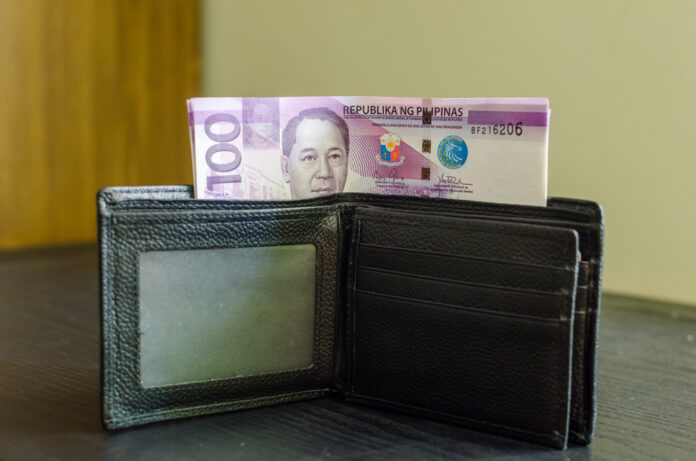Most major trade and business organizations in the Philippines have expressed strong opposition to the Senate-proposed P100 minimum wage increase, warning of grave consequences for micro, small and medium enterprises (MSMEs) and the millions of workers in the informal sector.
In a position statement dated 14 February 2024, the industry associations said they stand with the government in upholding an inclusive, sustainable path to growth.
“It is thus within this context that we have consistently and strongly opposed attempts to legislate minimum wage increases, a mandate which Congress has long ago delegated to the objective judgment of the Regional Tripartite Wages and Productivity Boards.”
Their opposition comes as the Senate approved on second reading Senate Bill 2534 seeking a P100 daily minimum wage increase for private sector workers. The bill was filed a week earlier and principally authored by Senate president Juan Miguel Zubiri and senators Ramon Revilla Jr., Loren Legarda, Nancy Binay, Bong Go, and Jinggoy Estrada.
The trade group argued that another wage hike via legislation in the wake of a recently implemented minimum wage hike through the wage boards “is not the appropriate solution to address the underlying challenges faced by our Filipino workers.”
They pointed out that 15 of the 16 regional boards have just granted an increase in minimum wages “for the very same people that this proposed P100 legislated minimum wage increase aims to assist.
A letter addressed to the senators through Zubiri said the legislated wage hike will do more harm than good to both businesses and employees.
“The sudden imposition of a significant national wage hike would place an unprecedented burden on businesses, particularly on the micro and small-sized enterprises consisting of at least 95 percent of enterprises, many of which are still reeling from the aftermath of the COVID-19 pandemic,” the trade group explained.
They further said the measure will only make life worse for the 47 million workers in the informal sector as the measure will only benefit the 5 million minimum wage earners in the formal sector.
“We take the cudgels for them who form a preponderant part of the working population,” they said.
According to the trade group, the informal sector workers do not stand to benefit from the legislated wage increase.
“In reality, their pockets will be hurt more by higher inflation resulting from the proposed legislated minimum wage increase.”
The informal sector consists of agricultural workers with no employers, fisherfolks, unpaid family workers, home-based workers, ambulant vendors and street hawkers, jeepney/tricycle and pedicab drivers, temporary construction workers, small-scale miners, and quarry workers, among others.
It also includes tour guides, “on-call” entertainment workers, hairdressers, waste pickers and recyclers, barangay health workers, domestic cleaners, and food delivery riders and other gig workers, the statement read.
Instead of focusing on wage increases, policymakers, particularly the senators, were urged to take a more comprehensive approach to addressing economic inequality.
This includes investing more in education, skills development, and infrastructure, as well as creating an enabling environment for business growth and job creation. Legislation should also be passed that will “solve low productivity, poor governance, excessive regulations, worsening poverty and serious income inequality which characterize a country with a large informal sector,” the groups further stated.
They emphasized the importance of a constructive dialogue and collaboration among stakeholders to develop policies that promote equitable and sustainable economic growth.
The letter was signed by Enunina Mangio, president of Philippine Chamber of Commerce and Industry; Edgardo Lacson, chair of Employers Confederation of the Philippines; Sergio Ortiz-Luis Jr., president of Philippine Exporters Confederation, Inc.; Cecilio Pedro, president of Federation of Filipino Chinese Chambers of Commerce and Industry; Armand Gutierrez Jr., president of Philippine Association of Legitimate Service Contractors, Inc.; and Jack Madrid, president of IT & Business Process Association of the Philippines.Other signatories are Ronaldo Elepano Jr., president of Philippine Constructors Association, Inc.; Ruben See, president of Philippine Food Processors and Exporters Organization, Inc.; Danilo Lachica, president of Semiconductor and Electronics Industries in the Philippines; Roberto Claudio, Sr., president of Philippine Retailers Association and GS1 Philippines; Rene Almendras, president of Management Association of the Philippines; Joseph Tanbuntiong, president of Philippine Franchise Association; Arthur Lopez, president of Philippine Hotel Owners Association; Ebb Hinchcliffe, executive director of American Chamber of Commerce of the Philippines, Inc.; Michael Godinez, president of People Management Association of the Philippines; and Paulo Duarte, president of European Chamber of Commerce of the Philippines.







